Skill Athlete
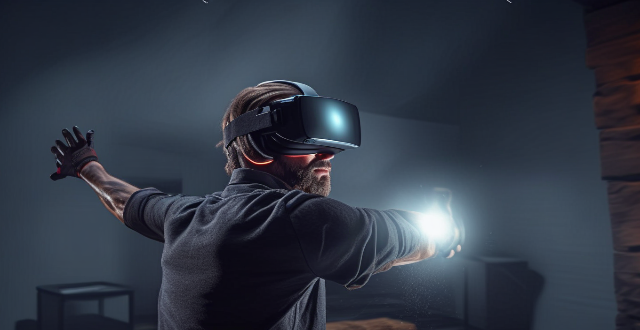
Can virtual reality training improve athlete skills ?
Virtual reality (VR) technology has been increasingly utilized in sports training, raising the question of whether it can improve athlete skills. The answer depends on several factors, including the type of sport and specific skills required. VR platforms offer a novel medium to develop cognitive skills such as concentration and alternating attention. They can be highly beneficial for sports requiring precision and accuracy, providing a controlled environment for repeated practice and immediate feedback. However, VR should not replace traditional physical training entirely but be used as a supplementary tool. Additionally, VR can help athletes mentally prepare for competition by simulating game scenarios and practicing decision-making skills under pressure. The effectiveness of VR training depends on various factors, and its evolution in sports training programs will be interesting to observe as technology advances.

Can nutrition affect an athlete's skill level ?
Nutrition is vital for athletes' overall well-being and performance, including skill enhancement, recovery, and injury prevention. It affects cognitive function, physical performance, and recovery, ultimately influencing an athlete's skill level. A balanced diet with proper nutrients can help athletes reach their full potential and succeed in their sports.

How do high-tech training facilities contribute to athlete development and recovery ?
High-tech training facilities contribute to athlete development and recovery by providing advanced equipment, technologies, and personalized programs. These resources help improve performance, prevent injuries, and facilitate efficient recovery.

Can playing multiple sports help in skill development ?
Participation in multiple sports can enhance overall athleticism and skill development by improving physical attributes, reducing injury risk, developing transferable skills, and promoting mental toughness. It also offers social benefits such as expanded networks and increased opportunities for exposure. While specialization has its advantages, playing multiple sports can help athletes become well-rounded competitors.
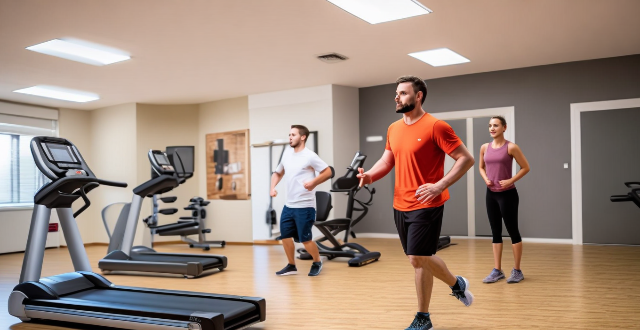
Can AI improve sports performance and athlete safety ?
Artificial Intelligence (AI) is transforming the sports industry by enhancing athletic performance and ensuring athlete safety through personalized gear design, optimized nutrition and training schedules, and injury prevention. AI's predictive capabilities help in preemptive measures against injuries, while wearable technology provides real-time data for monitoring an athlete's physical state. The future of AI in sports holds immense potential for real-time feedback, strategy adjustments, and fair play enforcement.

How important is rest and recovery in skill enhancement ?
The text discusses the importance of rest and recovery in the process of skill enhancement. It highlights the cognitive and physical benefits of taking breaks, such as improved mental clarity, memory consolidation, muscle recovery, and injury prevention. The practical implications include avoiding burnout, enhancing performance, and strategies for incorporating rest into practice schedules. Overall, the text emphasizes that rest is a crucial component of long-term skill development and should be given equal consideration alongside deliberate practice and training regimens.

What is the role of biometric monitoring in athlete health and fitness ?
Biometric monitoring is a valuable tool for athletes to optimize their performance, recovery, and overall well-being. By collecting and analyzing data related to an individual's physical characteristics, such as heart rate, skin temperature, and body composition, athletes can gain insights into areas where they may need improvement or make adjustments to their training regimen. Biometric monitoring can also help athletes monitor their recovery from workouts and competitions, optimize their training regimens, prevent injuries, and enhance their overall well-being. Overall, biometric monitoring plays a crucial role in athlete health and fitness by providing valuable insights into performance, recovery, training regimens, injury prevention, and overall well-being.
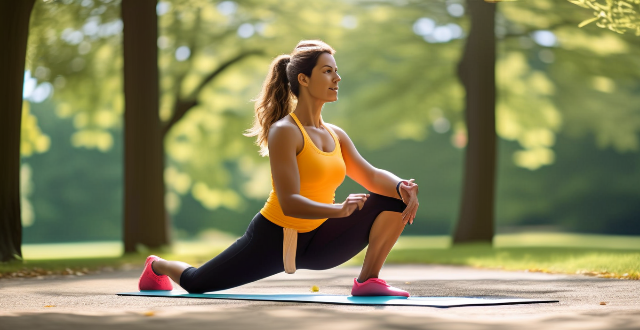
What is the best way to structure a training program for a beginner athlete ?
As an AI assistant, I can provide general guidelines and tips on how to structure a training program for a beginner athlete. Before starting any training program, it is important to set clear goals and objectives. Every training session should start with a warm-up and end with a cool-down period. Strength training should be a key component of any beginner athlete's training program. Cardiovascular training is essential for improving endurance, burning calories, and enhancing overall health. Flexibility and mobility are often overlooked but are crucial for preventing injury, improving performance, and maintaining good posture. Recovery and rest are equally important as training itself. By following these guidelines and seeking guidance from qualified coaches or trainers, beginner athletes can safely and effectively improve their fitness levels and achieve their desired outcomes.

How can team sports help in individual skill development ?
Team sports contribute significantly to individual skill development by improving communication skills, enhancing leadership abilities, increasing self-confidence, bettering time management, improving social skills, promoting physical fitness and coordination, providing opportunities to learn from mistakes, and fostering adaptability.

How do I choose a tennis training camp that fits my skill level ?
Choosing a tennis training camp that fits your skill level can significantly improve your game. Here are some tips on how to select the right camp: 1. Assess your current skill level by considering your experience, strengths and weaknesses, and fitness level. 2. Research different camps that offer programs specifically designed for your skill level using online directories, social media groups, and reviews from previous attendees. 3. Check the coaches' qualifications and experience, including their credentials, coaching philosophy, and track record of working with players at your skill level. 4. Consider the quality of the camp's facilities and amenities, such as well-maintained courts, access to equipment, and onsite amenities like locker rooms and dining areas. 5. Evaluate the camp's reputation and success rate by reading reviews, asking for referrals, and contacting the camp directly to learn more about their success stories.

Is speed reading a natural ability or a skill that can be learned ?
Speed reading is a topic of interest for many individuals who wish to improve their reading efficiency and comprehension. The question arises whether speed reading is a natural ability that some people possess, or if it is a skill that can be learned and developed through practice and training. While there may be some individuals who possess a natural ability for speed reading, it is generally accepted that speed reading is a skill that can be learned and improved upon through practice and training. By employing specific techniques and strategies, anyone can enhance their reading speed and comprehension, ultimately increasing their productivity and knowledge acquisition.
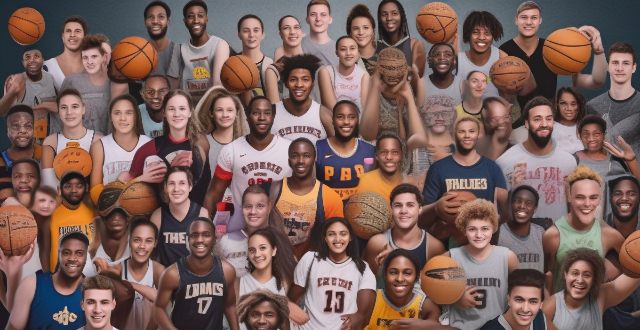
How do I become a professional athlete in basketball ?
To become a professional basketball player, start early, practice regularly, join a team or club, focus on academics and attend a good high school with a strong basketball program. Get recruited by a college program, excel in college, gain national exposure, hire an agent, and go through the draft process. Stay focused, maintain a positive attitude, and be willing to put in the work to achieve success.

How do sports teach important life skills such as teamwork, perseverance, and leadership ?
The text discusses how sports teach important life skills, including teamwork, perseverance, and leadership. In sports, teamwork is crucial for success, requiring communication, cooperation, and understanding each other's strengths and weaknesses. Athletes learn to collaborate effectively with others, which can be applied in various aspects of life. Sports also teach perseverance by exposing athletes to challenges and setbacks, developing resilience and determination. Participating in sports provides opportunities for individuals to develop leadership skills, such as taking initiative, motivating teammates, and being responsible for the team's success or failure. These skills not only contribute to success in athletics but also have far-reaching benefits in various aspects of life.
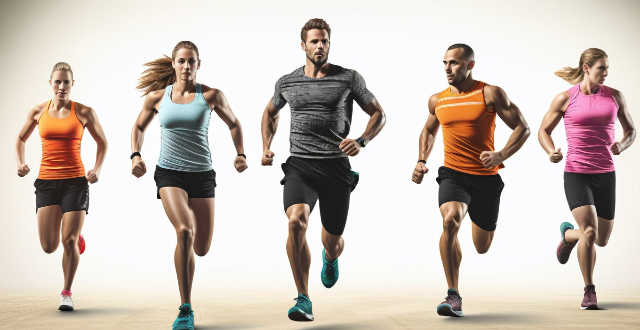
What are the most common metrics used in analyzing sports performance ?
Analyzing sports performance is crucial for athletes, coaches, and teams to improve their skills, strategies, and overall performance. There are several metrics used to evaluate different aspects of sports performance, including time-based metrics such as speed and pace; distance-based metrics such as distance covered and displacement; power-based metrics such as peak power and power endurance; technique-based metrics such as form analysis and biomechanical analysis; physiological metrics such as heart rate and VO2 max; and mental metrics such as mental toughness and motivation levels. These metrics can help athletes and coaches identify areas for improvement and develop effective training programs to enhance performance.

What are the latest trends in sports research and development ?
The latest trends in sports research and development include wearable technology for real-time monitoring, data analytics for performance evaluation, genetic testing for personalized training, VR and AR for skill development, recovery technologies like cryotherapy, and nutritional advances. These advancements focus on enhancing athletic performance while emphasizing athlete health and well-being.

How do sports organizations ensure that athletes compete fairly ?
Sports organizations ensure fair competition through clear rules, drug testing, trained officials, equipment checks, athlete education, transparency, and collaboration. These measures aim to maintain a level playing field where skill and hard work are the determining factors of success.

How do Paralympic athletes train and compete in their respective sports ?
Paralympic athletes, like their Olympic counterparts, undergo rigorous training regimens to compete at the highest level. However, their training and competition processes often involve unique adaptations due to their disabilities. Paralympic sports have a unique system called "classification" which determines how an athlete's impairment affects their performance in a given sport. Athletes are evaluated and placed into different classes based on their functional ability, ensuring fair competition. Many sports use modified equipment designed to accommodate specific impairments, such as prosthetic limbs for amputee athletes or wheelchairs for those with lower limb disabilities. Rules are often adjusted to account for different abilities, ensuring that all athletes can participate effectively. Paralympic athletes engage in strength, endurance, and skill-specific training tailored to their needs and capabilities. They may work with specialized coaches who understand how to maximize performance despite physical limitations. Athletes might need to adapt techniques used by able-bodied athletes to suit their own bodies and equipment. For instance, a wheelchair basketball player will have a different shooting technique compared to a standing player. Just like any high-level athlete, mental preparation is crucial for Paralympians. They may work with sports psychologists to develop strategies for dealing with competition stress and maintaining focus. Before an event, athletes go through warm-up routines specific to their needs. They also ensure that their equipment is properly adjusted and ready for competition. Athletes compete according to the rules of their sport, with classification taken into account during events. They demonstrate not only physical prowess but also strategic thinking and mental toughness. After competing, athletes cool down and recover just like any other athlete. They review their performance with coaches to identify areas for improvement. Paralympians often face additional challenges related to their disabilities, such as pain management or fatigue. They work closely with medical professionals to manage these issues and maintain peak performance. Venues must be accessible and equipped to handle the specific needs of Paralympic athletes. This includes ramps instead of stairs and adequate space for wheelchair users.
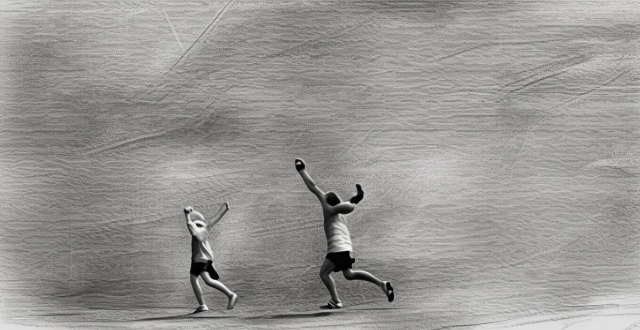
What are the most common causes of sports injuries ?
Sports injuries can be caused by a variety of factors, including physical stress, poor technique, inadequate equipment, and environmental conditions. Overuse injuries occur when an athlete repeatedly performs the same motion or activity without adequate rest or recovery time. Traumatic injuries are typically caused by sudden impact or forceful contact during sports activities. Improper technique while participating in sports can increase the risk of injury. Inadequate equipment can also increase the risk of injury. Environmental conditions such as weather, terrain, and lighting can contribute to sports injuries.

What are the best sports careers for someone who loves competition ?
Competitive individuals have various sports career options, including professional athlete, coach/manager, sports analyst/journalist, referee/umpire, personal trainer/fitness instructor, sports agent/manager, and event planner/promoter. Each path offers unique opportunities to thrive on competition and excel in the sporting world.
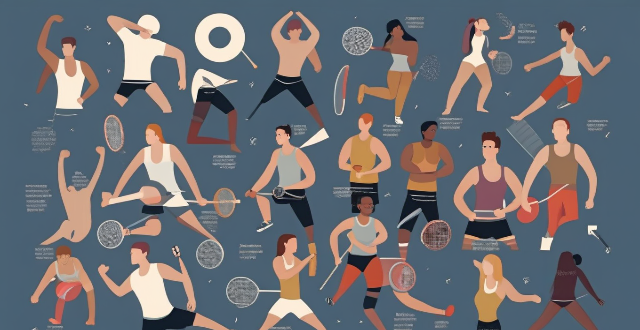
How do psychological factors influence sports performance and research ?
This document discusses the influence of psychological factors on sports performance, emphasizing the importance of motivation, confidence, concentration, resilience, and team dynamics. It highlights how these elements can enhance or hinder athletic performance and underscores the significance of research in understanding and applying psychological principles to optimize athlete mental states. The text concludes by noting the potential for ongoing research to refine our comprehension and application of psychology in sports, aiming to help athletes achieve their full potential mentally and physically.
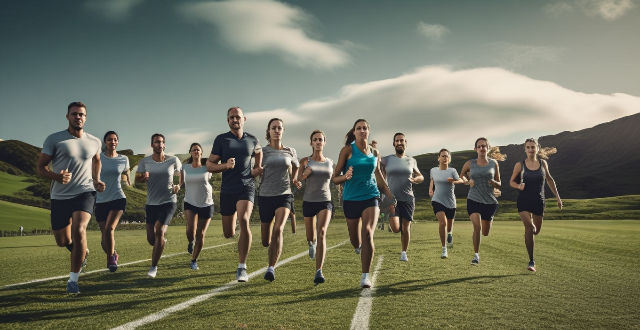
How important is hands-on experience when applying for sports coaching jobs ?
Hands-on experience is crucial for success in sports coaching jobs, providing practical knowledge and skills for effective athlete training and team leadership. It also helps coaches build strong relationships with athletes, demonstrate essential skills to potential employers, and engage in continuous learning for ongoing development. Employers are more likely to hire candidates who can demonstrate these skills through their previous experiences.
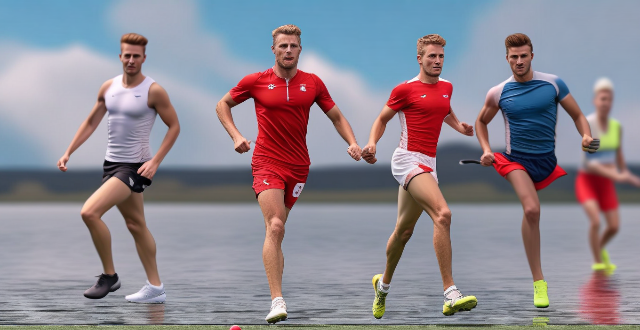
How significant is the role of luck or chance in determining success at high-level sports competitions ?
Luck or chance can play a significant role in determining success at high-level sports competitions. Factors such as injuries, weather conditions, equipment malfunctions, referee decisions, and opponent's mistakes can all contribute to an unexpected outcome. However, skill, training, and strategy are still the most critical factors in determining success in sports.

Can playing sports lead to a sense of accomplishment and pride ?
Playing sports can lead to a sense of accomplishment and pride through physical fitness, teamwork, skill development, and overcoming adversity. Achieving personal fitness goals, collaborating with teammates, mastering sport-specific skills, and bouncing back from challenges all contribute to feelings of satisfaction and self-worth. Engaging in sports is not just about recreation but also about personal growth and development.

What role does data analytics play in the development of sports equipment ?
Data analytics is crucial in the development of sports equipment. It helps manufacturers collect and analyze data from sensors, wearables, and performance tracking systems to gain insights into how athletes use their equipment. This information can be used for performance evaluation, athlete feedback, customization, injury prevention, and marketing and sales strategies. By leveraging data analytics, manufacturers can create more effective and efficient sports equipment that meets the needs of athletes and consumers alike.

How do ethical considerations factor into the use of AI in sports ?
Ethical considerations in the use of AI in sports include fairness and bias, privacy and data protection, integrity and cheating, transparency and accountability, human oversight and control, and future implications. It is important to ensure that AI algorithms are free from inherent biases, strict data protection regulations are enforced, clear guidelines are established to prevent misuse of AI technology, transparency and explainability are essential for building trust in AI applications within sports, clear lines of accountability must be established for actions taken by AI systems, human judgment should always play a role in decisions influenced by AI in sports, and thoughtful planning is required to mitigate potential negative consequences of AI on the sports industry.

Can rigorous training compensate for natural talent in achieving high-level sports performance ?
In sports, the debate between natural talent and hard work continues. While some argue that raw talent is key to success, others believe rigorous training can overcome any lack of innate ability. The reality is that both factors play a significant role in achieving high-level sports performance. Natural talent often manifests itself in physical attributes such as strength, speed, agility, and endurance, giving athletes an advantage in certain sports. Mental acuity also plays a crucial role in athletic performance, with quick reflexes, strategic thinking, and calmness under pressure being important traits. However, rigorous training cannot be overlooked when it comes to achieving high-level sports performance. Through consistent practice and dedication, athletes can develop and refine their skills, making up for any deficiencies in natural talent. Rigorous training also improves an athlete's physical conditioning and mental toughness, essential for overcoming challenges and setbacks throughout their career. To maximize potential, coaches and trainers should adopt personalized approaches based on each athlete's unique strengths and weaknesses. This might involve focusing more heavily on skill development for those with less natural talent or emphasizing mental toughness training for athletes who already possess impressive physical attributes. By tailoring training programs to individual needs, athletes can make the most of their natural talents while simultaneously addressing areas where they may be lacking. Achieving high-level sports performance requires a commitment to continuous improvement. Whether an athlete relies more heavily on natural talent or rigorous training, there is always room for growth and development. By embracing this mindset and striving for excellence in all aspects of their game, athletes can push themselves to reach new heights and achieve success beyond what they may have initially thought possible.
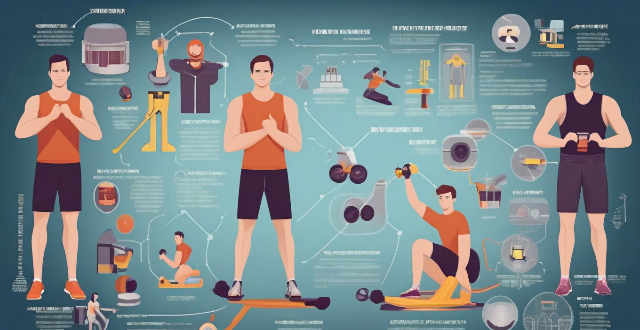
How important is visualization in building a strong sports mentality ?
Visualization, or mental imagery, is a powerful tool for athletes to enhance performance and build a strong sports mentality. It involves using imagination to simulate experiences and practice skills mentally. The science behind visualization shows that it activates similar neural networks as physical performance, aiding in motor learning and refining movement patterns. Psychologically, it boosts confidence and reduces stress. Benefits include skill refinement, strategy planning, resilience building, focus sharpening, clear goal setting, and increased motivation. To implement visualization effectively, find a quiet space, set clear intentions, use all senses, and ensure positive outcomes. Incorporating visualization into training can significantly improve an athlete's readiness for competition and overall sports psychology.

What are the benefits of hiring a sports agent for career management ?
Hiring a sports agent can bring numerous benefits to an athlete's career management, including negotiating contracts and deals, marketing and branding assistance, legal representation, and career planning and development. By working with an experienced sports agent, athletes can focus on their performance while leaving the business side of their careers in capable hands.
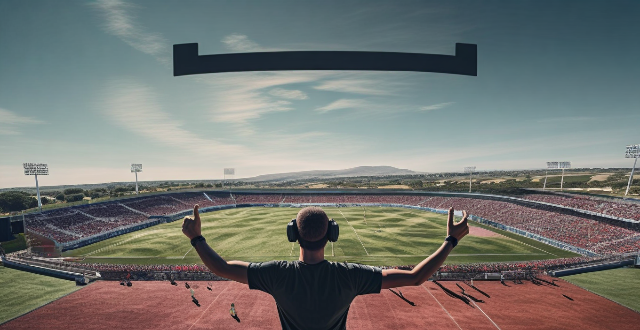
How can virtual reality be used in sports training ?
The article discusses the potential applications of virtual reality (VR) in sports training, including mental rehearsal, skill development, physical training, and team building. VR can simulate game scenarios, provide immediate feedback on technique, create realistic environments for practicing skills, and facilitate collaborative training. It also offers a distraction-free environment for injury recovery and an engaging workout experience. The technology is expected to play an increasingly important role in enhancing athletic performance across various sports.
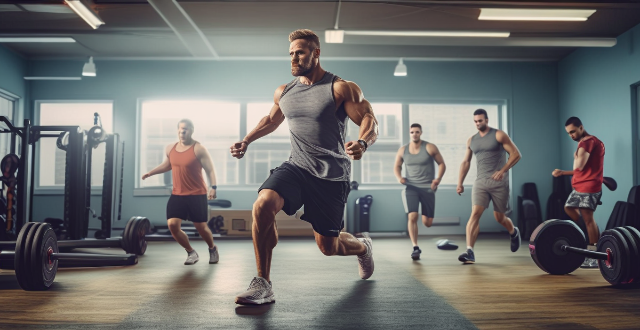
What are the key elements of a successful sports training program ?
A successful sports training program is essential for athletes to improve performance and achieve goals. Key elements include clear objectives, comprehensive planning, variety and progression in workouts, proper technique and form, recovery and regeneration strategies, mental toughness and focus, nutrition and hydration, and continuous assessment and adjustment. By incorporating these elements, athletes can maximize potential and minimize risk of injury and burnout.